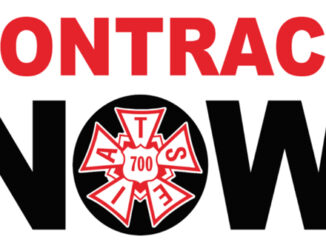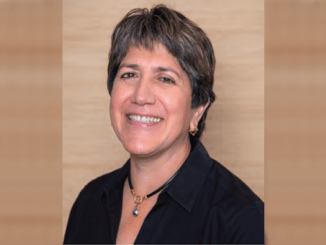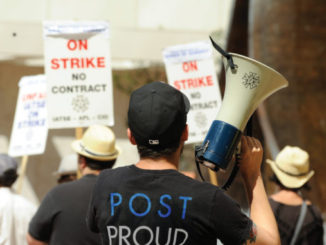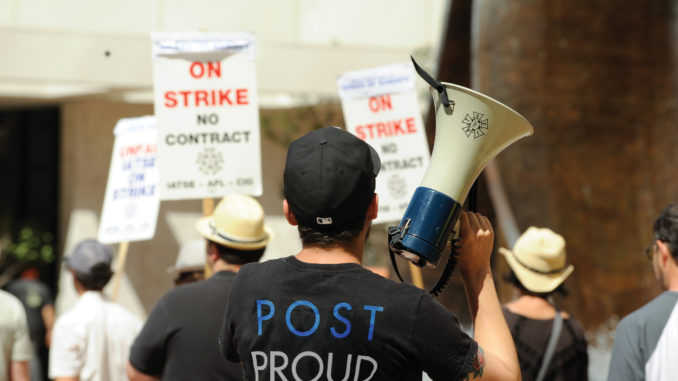
By Ron Kutak
When I was driving downtown to our 75th anniversary celebration, I couldn’t help thinking what a milestone this was for the Guild and what a marker it was for me, reflecting on our last 25 years. I was a brand-new business agent, a year or two into the job at our 50th anniversary. Between then and now, we’ve made remarkable progress, but in some ways, oddly, we remain dealing with the same issues.
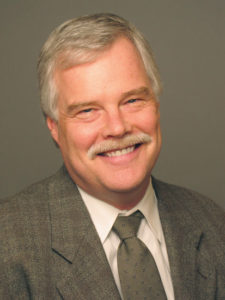
Our progress speaks for itself. We have built ourselves into the largest and potentially the strongest union in the IATSE. We’ve increased the defined benefit pension over 80 percent, established a previously dormant IAP (individual account plan) to now 6 percent of scale for all hours worked, preserved our health plan under tremendous financial pressure, amalgamated all post-production classifications under one umbrella nationwide, and overall maintained the ability of our members to work under decent wages and conditions, and retire with dignity.
What haven’t we done that needs still to be done? There are many challenges still ahead. Our membership needs to self-empower: to lock arms and say NO in the workplace when something is wrong. You are not powerless and you are not alone. The union is the only thing providing a check and balance to the producers — large and small — against their unrestrained ability to establish whatever rates and conditions they can get people to work for. As Ving Hershon, a now-passed music editor and member for many years, said, “The union is a bunch of guys that got together and promised not to screw each other.”
He was right; yet in today’s fragile economy, a job is an important thing not just to have, but to keep. We’ve been looking for a way out of this problem for many years, and I think I have learned this much:
- If the employers can take advantage, the employers will. If they get away with saving money by eroding the contract with one person, they will try to extend their advantage to all.
- Members reticent to speak out only make things worse for themselves, worse for others and, ultimately, worse for the entire union.
- So let’s try something a little different. Talk to your peers, talk to your board representatives and build some consensus among the membership on issues first; then act collectively and in unison, which is where our power lies.
Here are two challenges to start with: - No one works unpaid overtime.
- Supervising sound and music editors do not work “on call” if they are supervising one show.
Simple. If all the members agree amongst themselves not to engage in either of these practices, they will stop. Of course, most everyone needs to buy in, but even if the vast majority refuses to work unpaid overtime, others on the show — through empowerment or peer pressure — will probably join in. No one wants to work unpaid hours after all. This one hits assistants the hardest in editorial, and it is important that the editors stand up too.
The members can’t fix things when they feel isolated and economically threatened, and these feelings make it much harder for our Field Representatives and the others of us who work in the office as well. We can’t just expect the members to spontaneously combust to defend our agreements, and the members can’t expect the union office to just “fix it” when we have no one to represent and no facts with which to even start an investigation.
Our membership needs to self-empower: to lock arms and say NO in the workplace when something is wrong.
Many of us, including me, have had jobs in their lives where they are simply told their pay and conditions, take it or leave it. This may be a road to survival, but not a road to a career that also enables us to have a life outside work.
When I began in the film business, I saw too many people much older than I struggling to make benefits with the freelance life — and a future that looked like they would have nothing to show for it. The union changed my life, and changed yours. Hopefully, you realize it. Without the union, especially since our business is popular and “glamorous,” producers would continually pressure employees to the lowest common denominator they could establish and still get the job done.
During the year, we will attempt to have meetings by classification where we can identify issues properly and, with input from everyone, forge a strategy and tactics for working together to fix it. But please don’t wait for that — you need help, and we know it; we need help and need you to know it.
We also still struggle with technology, and our membership has shined through the videotape transition (the biggest issue at the time of our 50th anniversary), and we now shine — and will continue to do so — in the ever-changing digital world. But we must be vigilant. We need to know more than everyone else, continue to participate in the development and field-testing of workflow, be teachers, and be relied on. Our members should always want the ball, not be the ones who want to hand it off to someone else. In this lies our future strength. As technology continues to change workflow, we should be ahead of it and in control as best we can, not spend time catching up.
For our next 25 years, or 10 years, or two weeks for that matter, our membership needs to realize its strength in numbers, knowledge, creativity and importance to the post-production process as a union — together. An attack on one is an attack on all. Defend each other, defend the contract, and defend your right on the job to have the contract adhered to. Because in post-production, you are the ones who count, not your “managers.”
Finally, on a personal note, it gave me great pleasure to have the honor of presenting Diane Adler and Bill Elias their achievement awards at the anniversary party. I have known them both for over 30 years, and their dedication to the union is unparalleled, as is the appreciation and respect I have for both of them.


